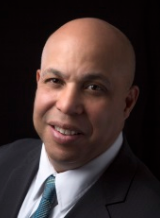Duff: Thinking Clearly About the Quid Pro Quo
Monday, September 10, 2018 | 0
I wanted to make some comments about the recent Kansas quid pro quo case Johnson v. U.S. Food Serv.

Michael C. Duff
I won’t repeat the facts here. It is enough to know that a permanent impairment benefit was significantly reduced under the sixth edition of the AMA Guides as compared to what it would have been under the earlier fourth edition, and the Kansas intermediate appellate court plurality reviewing the award found the reduction to be a bridge too far — a violation of the quid pro quo (I have written on such incremental-erosional theories here).
Attentive readers will have noted that the underlying challenge was brought under both Kansas state quid pro quo law and a 14th Amendment (of the U.S. Constitution) due process theory. Although the opinion discusses the old N.Y. Central R. Co. v. White (1917) case (in general terms), the court did not find that the benefit reduction violated federal due process.
I’ve spent a good chunk of my summer reading and very closely analyzing cases like White, Mountain Timber, the Arizona Copper/Liability cases and Krinsky. I’ll save you a lot of time by giving the shortest version I can of what the cases said:
“Yes, states may implement workers’ comp (or employer liability statutes) despite what some employers argue about 14th Amendment deprivations of property or interference with contract. Thank goodness. However, we don’t have to decide the boundaries for how low employee benefits can go in the quid pro quo (before there might be a constitutional problem), because what we are looking at here obviously does not approach that floor.”
Crickets.
The federal courts of the era certainly did not set up a 14th Amendment, substantive due process analysis that might be used to delineate benefit floors. Nothing like substantive due process analysis/theory yet existed in the 1910s.
In fact, the whole idea of applying “strict scrutiny” for legislative infringement of “fundamental” rights (a step of modern federal substantive due process analysis) did not begin to crystallize until the U.S. Supreme Court’s opinion in United States v. Carolene Products Co. (1938).
Of course, even to get that far under the modern theory, the exchanged tort rights must be deemed “important” or “fundamental” to escape deferential rational basis review, something that has only infrequently happened. See the now-overturned Smothers v. Gresham Transfer case. (This will be the real challenge for all federally based, and most state-based, claimant challenges in the future).
Consider that the 1914 N.Y. workers’ compensation statute upheld in White provided no ongoing medical benefits for a work-related injury (beyond the first 60 days for first aid). The same was true for many states (probably emulating the 1897/1906 British act, which became moot because national health insurance was established in the U.K. in 1911, which universally thereafter covered all medical expenses of injured workers, as had been the case in Germany since 1884).
Kansas provided total benefits of 50% of the average weekly wage (subject to a pretty low cap) or partial benefits of 50% of wage loss (subject to the same cap), and disability payments in both cases expired after eight years. These are the kinds of austere statutes the U.S. Supremes upheld, and I sometimes think that as a claimant I might prefer to argue they were wrongly decided.
Moving beyond the vague federal law, Kansas’s quid pro quo doctrine, uniquely among the states, directly equates substantive due process with quid pro quo and assigns fundamental, or quasi-fundamental, status to workers’ compensation rights (and implicitly tort rights).
Along with Florida, Kansas has some very favorable state constitutional language providing plaintiffs with — at least potentially — some real leverage. But (regrettably, as I see things) what happens in Kansas, probably stays in Kansas. To prevail on quid pro quo grounds in most other places, claimants will likely have to avail themselves of other state-based constitutional arguments.
Michael C. Duff is associate dean for student programs and external relations, and is professor of law at the University of Wyoming College of Law. This entry is republished from the Workers' Compensation Law Professors blog, with permission.





Comments